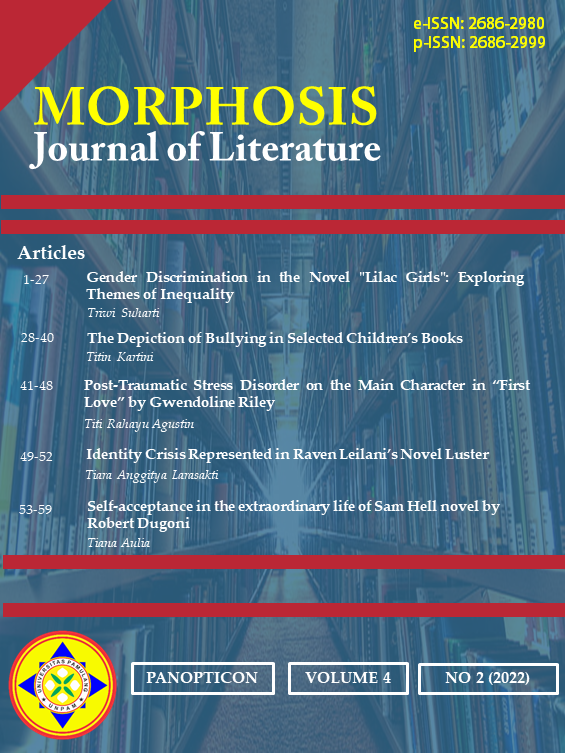Gender Discrimination in the Novel "Lilac Girls": Exploring Themes of Inequality
Abstract
Gender equality between women and men remains a challenging battle despite its widespread discussion. Many perceive women as powerless and secondary, indirectly fostering gender discrimination rooted in the belief of female inferiority and male dominance. Additionally, efforts to diminish gender-based discrimination often involve curtailing women's empowerment, a movement granting women the freedom to make life decisions. Examining gender-based discrimination and women's empowerment in Martha Hall Kelly's novel "Lilac Girls," this study seeks to explore how these themes are portrayed by the three main characters. Drawing on Friedan's (1963) theories of gender inequality and women's emancipation, a qualitative approach is employed, utilizing quotations from the novel as data. The analysis reveals that "Lilac Girls" underscores gender discrimination across societal realms, including individual interactions within families and communities. Despite facing discrimination, the three main characters assert their power, illustrating the impact of women's empowerment on society. The depiction of gender discrimination and women's empowerment in Kelly's novel resonates with Friedan's perspectives, further highlighting the ongoing struggle for gender equality.
Keywords: gender inequality, discrimination, empowerment of women, lilac girls, novel.











